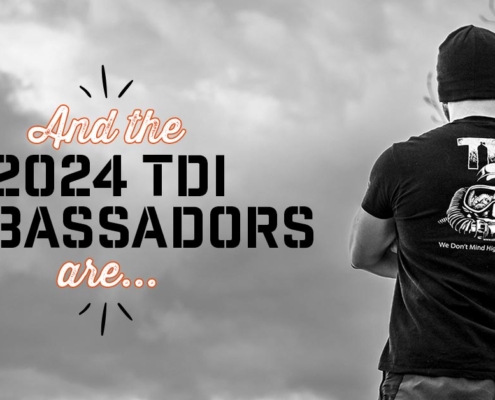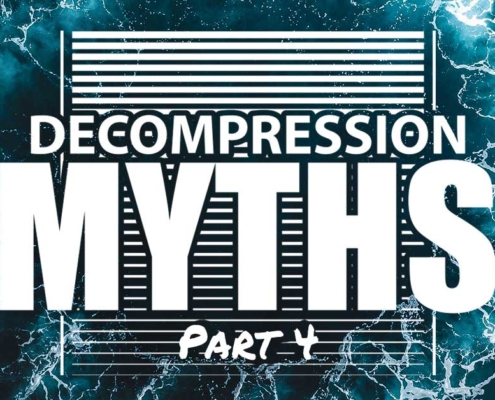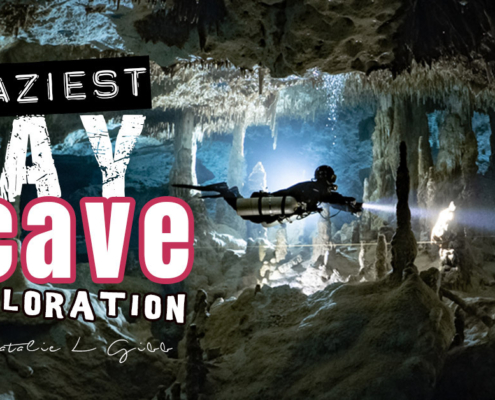By Gustavo Padilla – TDI Instructor
Honest feedback and the Dive Industry
When I took my first overhead environment course in 2012, I had recently become a certified dive master. Up to that point, I had only received praise for my buoyancy control. Going from open water to DM had not posed any significant challenges for me. However, the moment I put on doubles, it became a difficult task to maintain stability, and I found myself struggling.
Now, after 11 years, I realize that my previous instructors may not have taken the time to provide me with proper feedback to improve my diving skills. Instead, they limited themselves to giving me simple compliments such as “good job buddy.”
Safety is paramount
In the world of diving, whether it’s sport, technical or Cave, safety is paramount. As a result, honest and constructive feedback is essential in ensuring that divers are properly trained and equipped to handle the unique challenges that come with exploring the underwater world. Without such feedback, divers may be ill-prepared to handle unexpected situations, which can have negative consequences.
Instructors play a critical role in providing feedback to their students. By prioritizing safety over profit, they can help their students develop the necessary skills and knowledge to become competent divers. This means providing feedback in a constructive manner, highlighting areas where the student can improve and offering suggestions on how to do so.
Honest dialogue
By establishing an open and honest dialogue with their students, instructors can gain a better understanding of their strengths and weaknesses. This not only helps students to improve their skills, but it can also foster a sense of trust between the instructor and student. When students believe that their instructors are being truthful and transparent, they are more likely to trust their guidance and feel confident in their abilities as a diver.
Furthermore, honest feedback can also benefit the dive industry as a whole. When instructors prioritize safety and provide honest feedback to their students, they help to maintain high standards of training and safety throughout the industry. This can lead to increased public confidence in diving as a safe and enjoyable activity, which in turn can lead to more people becoming interested in the sport.
On the other hand, if instructors prioritize profit over safety and fail to provide honest feedback to their students, it can have negative consequences. Inexperienced or poorly trained divers can pose a danger to themselves and others, potentially leading to accidents or injuries. Additionally, such incidents can damage the reputation of the dive industry as a whole, which can ultimately hurt everyone involved.
Educational Settings
Honest feedback is crucial in any educational setting, and diving is no exception. By providing constructive feedback in a transparent and honest manner, instructors can help their students develop the necessary skills and knowledge to become competent divers. This not only benefits the student, but it can also build trust between the instructor and student, and help to maintain high standards of safety throughout the dive industry.
It’s important to note that feedback doesn’t just come from instructors. Fellow divers can also play a role in providing constructive criticism to their peers. In fact, peer feedback can often be just as valuable as feedback from an instructor.
Dive communities often have a strong sense of camaraderie, and divers are usually more than willing to offer help and advice to their fellow divers. By creating a culture of open communication and constructive feedback within the diving community, divers can help each other improve their skills and become safer, more competent divers.
It’s also worth mentioning that feedback isn’t just about pointing out mistakes or areas for improvement. Positive feedback is just as important in building confidence and reinforcing good habits. Instructors and fellow divers should take the time to acknowledge and praise good diving practices, as this can encourage divers to continue building on their strengths and developing their skills.
Finally, it’s important to remember that feedback is a two-way street. Instructors and fellow divers should be open to receiving feedback themselves, as this can help them improve their teaching or diving skills. By creating an environment of mutual respect and open communication, everyone can benefit from honest and constructive feedback.
In summary
In summary, providing honest and constructive feedback is essential in ensuring that divers are properly trained and equipped to handle the unique challenges that come with exploring the underwater world. Instructors and fellow divers should prioritize safety over profit, establish an open and honest dialogue with their students, acknowledge both strengths and weaknesses, and be open to receiving feedback themselves. By doing so, they can help to maintain high standards of safety throughout the dive industry and foster a culture of continuous improvement and learning within the diving community.
Keep Reading












 Natalie L. Gibb
Natalie L. Gibb
Leave a Reply
Want to join the discussion?Feel free to contribute!